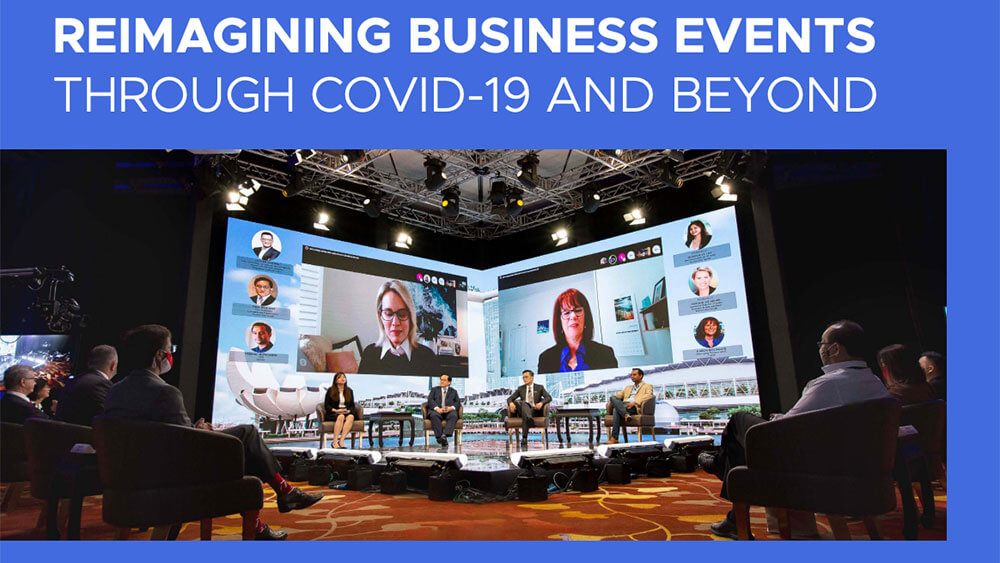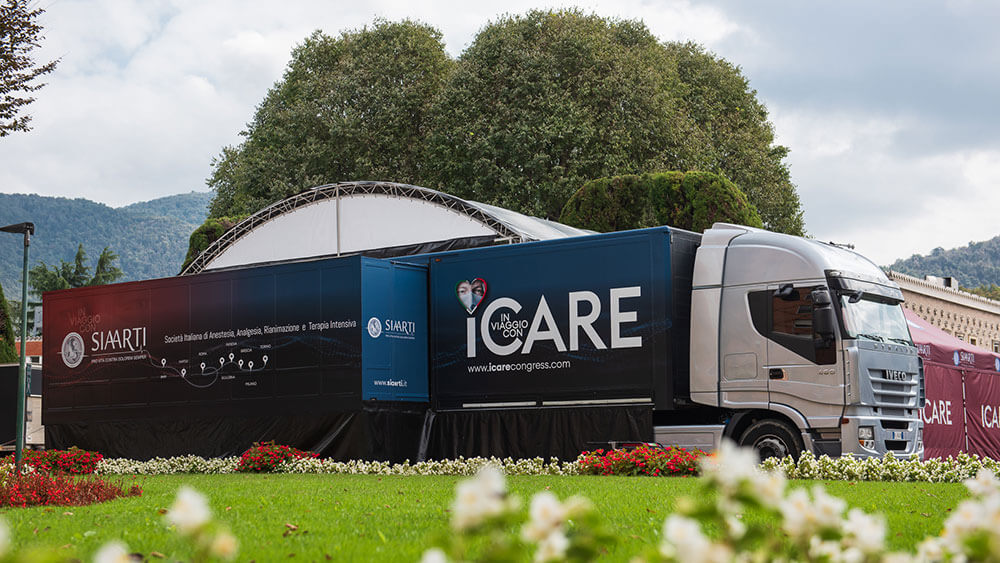
The white paper uses three innovation pillars as a framework to help business events professionals reengineer the industry: business models, delegate experience, and talent and capabilities.
The pandemic offers an opportunity for the business events industry to reinvent itself, according to a recently published white paper jointly presented by PCMA, Singapore Exhibition & Convention Bureau, Singapore Tourism Board, and UFI, the Global Association of the Exhibition Industry. But the paper, “Reimagining Business Events Through COVID-19 and Beyond” — launched at the first hybrid Singapore MICE Forum + IBTM Wired at Marina Bay Sands in Singapore on June 28 — doesn’t make light of the havoc the pandemic has wreaked on the industry: Global travel and hospitality suffered a staggering loss of $935 billion, with the business events industry among the worst hit.
The focus of the white paper is not about handwringing but on recovery through reinvention — recognizing that a return to the way things were before the pandemic is not a viable or wise option. The white paper uses three innovation pillars as a framework to help us reengineer the industry: business models, delegate experience, and talent and capabilities.
Case-study examples from around the world are provided to illustrate those constructs. Here are some highlights from those case studies from each pillar.
Business Models
GEVME, a Singapore-based global technology provider for business events, invested in “accelerated product ideation” and adopted a start-up approach to new concepts, abandoning what seemed to be promising ideas if they didn’t perform well. For example, Veemal Gungadin, GEVME’s founder and CEO, was enthusiastic about the idea of Serendipity Rooms, which was in development in 2020, as a way to have a small group of delegates interact with like-minded people in a kind of digital salon — a kind of online version of the chance encounters attendees have at physical events.
However, once GEVME rolled this out for events, it became clear that many participants preferred to remain silent, waiting for others to launch conversations. The GEVME team “discovered that the urge to fill silence in physical meetings was just not as present in digital ones, where people had the option to walk away from their devices even as they are logged on,” according to the white paper. This observation prompted the team to add a conversation facilitator to spark discussions — a successful tweak at the WIT Travel Roadshow held earlier this weekend.
Delegate Experience
The white paper provides the Italian Society of Anesthesia, Analgesia, Resuscitation, and Intensive Care (SIAARTI) as an example of an event that went multi-channel to reach its members during heightened restrictions across Italy, with a road show. Working with AIM Group International, SIAARTI sent a truck to eight cities, housing a studio from which content was broadcasted on big screens for physical and virtual participants. “The scientific programming of the virtual congress followed a vastly different structure from the physical one, and the full program was eventually run like a television schedule with short pieces of content, interviews, and numerous spots,” according to the white paper. Convene also wrote about SIAARTI’s innovative road-show approach in January.

The Italian Society of Anesthesia, Analgesia, Resuscitation, and Intensive Care went multi-channel with the “Travelling with ICARE” tour to reach its members.
Reimagine Talent and Capabilities
When large-scale events started getting postponed and canceled in Australia, the Melbourne Convention and Exhibition Centre (MCEC) established a “business relaunch” team to spur the creation of new business concepts and did not limit the ideation process to internal staff. “We welcomed all ideas: big and small, business-as-usual, and totally new, from within and outside the organization,” said MCEC Chief Executive Peter King. During Unconventional Ideas, an online hackathon held over two and a half days in August 2020, 100 participants pitched and workshopped ideas for MCEC to shift into new markets and develop new revenue streams.
One idea from the hackathon that has been fully executed: Sound Studios, a partnership with Film Victoria, to host production of a film — Liam Neeson’s Blacklight — at the convention center. MCEC has generated a higher margin of 32 percent compared to traditional events hosted at the center as a result of Sound Studios.
“Innovation amidst a pandemic is not a sprint for the sector to resume to pre-COVID levels, but a marathon to transform,” concludes the white paper. “Event organisers and planners must explore new ways to execute events, accommodate multi-channel approaches and encourage remote participation while leveraging technology.”
Download a complimentary PDF of the full white paper.
Michelle Russell is editor in chief of Convene.
